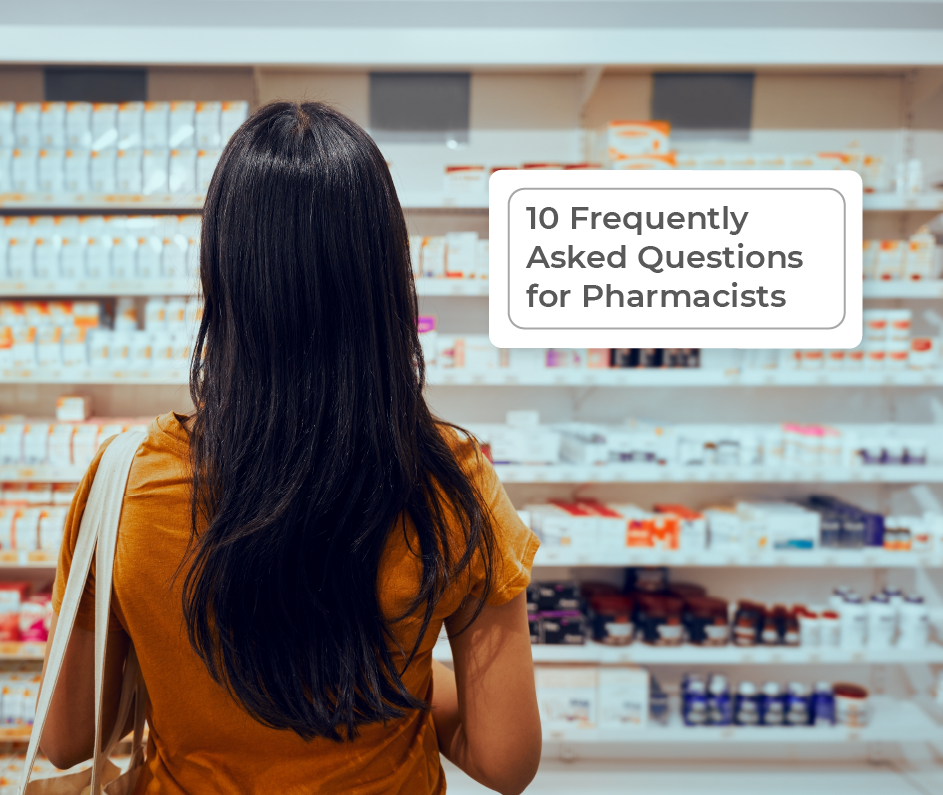10 Frequently Asked Questions for Pharmacists

Since pharmacists are highly trained experts in dispensing and managing medications, we often turn to them to answer questions about our prescriptions, side effects, and overall health. Here are the 10 most frequently asked questions for pharmacists.
1. Why Are Pharmacists Important?
Pharmacists are extremely knowledgeable about pharmacology and drug side effects. A pharmacist can help recommend medications and monitor your health for potentially harmful interactions.
2. What if My Medications Make Me Sleepy?
Over-the-counter medications often cause drowsiness. Proper dosing schedules can help to reduce daytime drowsiness. If a medication is causing drowsiness, you should avoid driving or operating machinery while taking it.
3. Can Age Increase the Risk for Any Medication Side Effects?
Yes. There are many medications which can impair memory or cause brain fog. Such side effects tend to have a greater impact on the elderly.
4. Why Do Some Medications Affect My Bathroom Habits?
Many medications are diuretics, which work to remove fluid from the body, increasing urination. Additionally, many medications have diarrhea as a side effect.
5. Does It Matter What Time of Day I Take My Medications?
Yes. It is extremely important to follow the dosing schedule for your medications. Be sure to take it at the same time everyday as recommended by your doctor and avoid missing doses.
6. How Can Caregivers Help Manage Medications?
While caregivers cannot legally open medication containers, they can still help patients by reminding them when to take their medications and confirming they are following their dosing schedule.
7. Should I Throw Out Medicine After the Expiration Date?
Though there is some debate when it comes to expiration dates, in general, you want to be cautious, particularly if you are elderly. The effects will vary by medication. If you are unsure, check with your doctor. They will be able to tell you how medicinal expiration may affect your specific medication.
8. Does It Matter How I Store My Medicine?
Be sure to store medicines in a cool, dry place away from children and pets. If you have multiple medications, you should also make sure to not mix them up.
9. How Can Foods Interact With Medications?
Most food and drug interactions involve either grapefruit or vitamin K-rich foods. Grapefruit can slow the metabolism of a medication while vitamin K may affect blood-thinners. Check with your pharmacist to see if your medications have any food interactions.
10. What Vaccinations Are Important For Seniors?
It is recommended that most seniors receive both a flu shot and a pneumococcal vaccine. Additionally, anyone over 50 should consider the shingles vaccine.
Become a Knowledgeable Pharmacist
To safely manage and distribute medications, pharmacists need to know all of the above, and more. As highly trained and educated professionals, pharmacists are essential to moving the healthcare industry forward, especially now as more medications become available.
If you are interested in pursuing a valuable and fulfilling a career in pharmacy, HealthCare Support can help. A premiere, national staffing resource for the healthcare industry, HealthCare Support will get you started on your career by placing you in a pharmacy role, and place, you love.
To learn more, give us a call at 888-219-6285.




